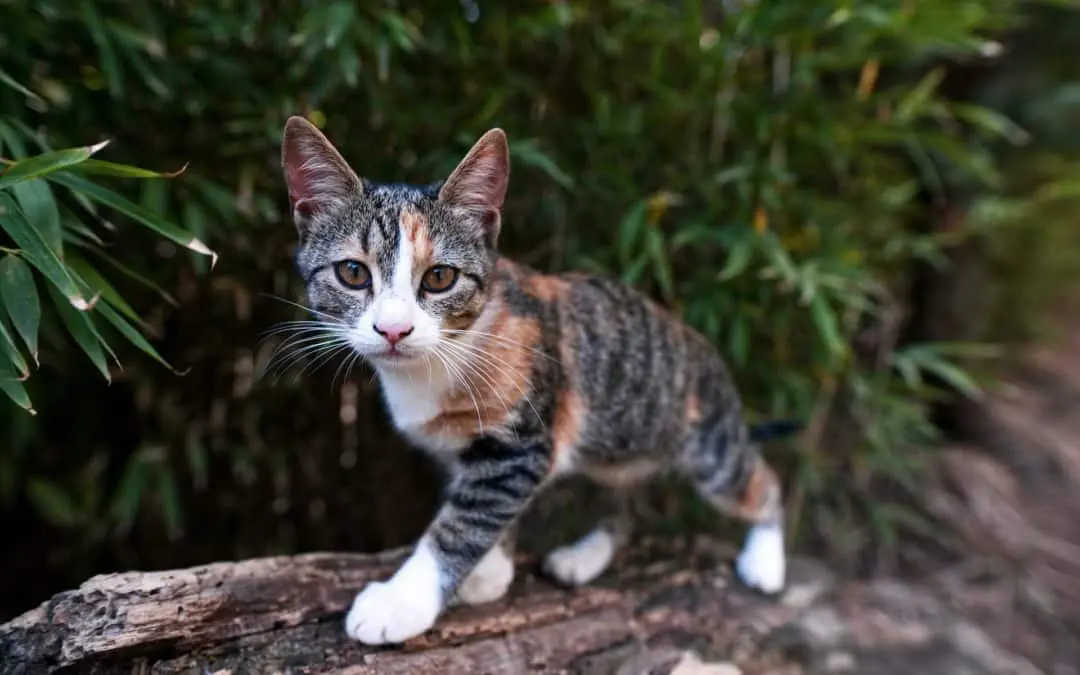One of the biggest decisions you can make for your cat is whether they will be an indoor cat or an outdoor cat. There are pros and cons either way. Ultimately, the decision is yours (although your cat will also have an opinion, as they always do). Many veterinarians and ecological experts agree that keeping your cat indoors is the best idea for two reasons: your cat’s health and safety, and the safety of other animals in their environment.
Should My Cat be an Outdoor Cat?
Since ancient times, cats have been our companions. Often they’ve lived inside our homes with us, while others live in barns or come and go as they please. You might be wondering if letting your cat roam outdoors would make them happier. However, before you let your cat outside, here are a few things you should consider.
Indoor vs. Outdoor Cats: Lifespan and Quality of Life
Statistically, cats who live indoors live longer. Indoor cats come into contact with fewer diseases and parasites and face no predators. Boredom and depression can sometimes affect indoor cats, but these conditions can be remedied with interactive play time. While there is some debate over whether or not outdoor cats tend to be happier, outdoor kitties usually have much shorter lifetimes.
Accidental Deaths are High for Outdoor Cats
Car accidents are a huge risk to outdoor cats and are often the #1 reason for early death. The next highest risk factor is predators. Areas with high populations of raccoons, coyotes, and other carnivorous wildlife often report predators as the highest reason for cat deaths and disappearances.
If your furry friend likes to wander outdoors, there is always the risk of them straying into the wrong yard. Many people might treat their property with rodent poisons that can also poison your cat when they hunt these little animals. Or, they might wander into the yard of a prey-driven dog, which is a big risk for your cat if they get caught. Humans also pose a risk—cats are often easy targets for people with guns, and cats often get mistaken for other animals like raccoons and foxes at night.
Cats Can Encounter Diseases and Parasites Outside
Outdoor cats also have a much higher chance of contracting an infectious disease or a deadly parasite. If your cat roams outside, they may come into contact with other animals that have diseases like:
- Rabies
- Feline AIDS (FIV)
- Feline Infectious Peritonitis (FIP)
- Upper Respiratory Infections
- Feline Distemper
- Feline Leukemia (FeLV)
- Intestinal Parasites
- Fleas
- Ticks
- Ringworm
Outdoor Cats Also Pose Environmental Risks
While it is absolutely adorable to see a sweet kitty lounging in the sun on a sidewalk, the fact of the matter is that cats are intense hunters. They have an innate hunting instinct that even thousands of years of breeding has never changed.
It is speculated that domestic cats are responsible for killing over 1.3 billion birds and 6.3 billion small animals every year. While a small portion of those kills are performed by feral cats, the majority of kills come from pet cats. Outdoor cats can have a huge impact on their environments. In fact, outdoor cats on islands have caused 14% of the modern day extinctions of birds, mammals, and reptiles.
Keeping Outdoor Cats Safe and Healthy
If you decide to let your cat outside, be sure to shut them in at night and during inclement weather. Extremely high or low temperatures can both be fatal to cats. Provide your cat with a litter box inside, even if they prefer to poop elsewhere, and consider building them a shelter they can use if they are ever stuck outside.
The most important thing to remember is to spay or neuter your outdoor cat, so they do not contribute to pet overpopulation. Seeking a mate is usually why cats roam and get lost or get hit by cars, so neutering can prolong their lifespan, as well.
What About Barn Cats?
Working cats—the ones you see in barns protect grain stores from invasive pests like mice or rats or protect poultry and eggs from predators like weasels. Although their impact on the environment is unclear, if they stick to their barn (which they tend to do) they do not pose a very big risk to the environment. If you have barn cats, be sure to get them spayed or neutered, and keep them up to date on their vaccines.
Health Care for Indoor and Outdoor Cats in Gilbert, Arizona
Keeping both indoor and outdoor cats up to date on vaccinations is a good way to protect their health and longevity. Vaccinations help outdoor cats fend off diseases carried by feral cat populations and rodents. They also protect indoor cats from contracting contagious diseases from other pets in the household or from other cats while boarding.
Microchipping helps both indoor and outdoor cats find their way back to you if they ever get lost. Pets with microchips have a 73% chance of making it back to their humans! Just make sure you keep the chip’s information up to date.
At East Valley Animal Hospital we can help you get your cat vaccinated, microchipped, neutered or spayed. Our loving team can make sure your pet lives a long and happy life indoors or out! Give us a call at 480-892-1577 to make your appointment today.
Images used under creative commons license – commercial use (9/19/22). Photo by Max Kleinen on Unsplash

